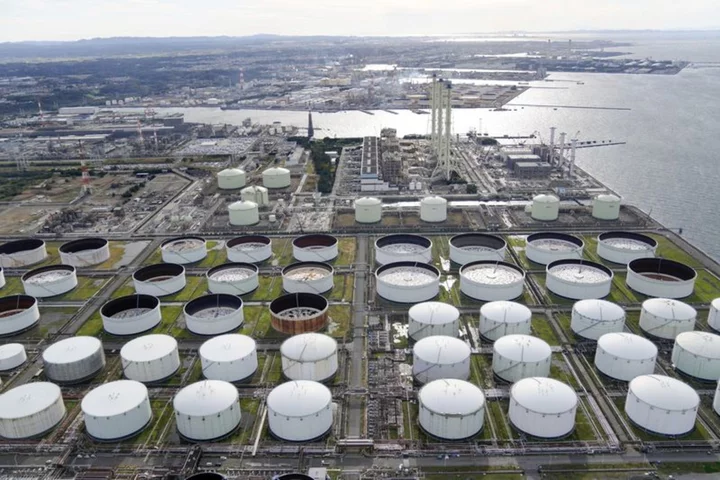By Alex Lawler
LONDON (Reuters) -Oil rebounded on Thursday as expectations of a tighter global crude supply outlook for the rest of 2023 overshadowed concerns over weaker economic growth and rising U.S. inventories.
Saudi Arabia and Russia's extension of oil output cuts will result in a market deficit through the fourth quarter, the International Energy Agency said on Wednesday before a bearish U.S. inventories report prompted a slight pullback in prices.
"That this genuinely bearish stock report only led to a brief temptation to sell speaks volumes and underlines the market mentality," said Tamas Varga of oil broker PVM.
The tightening oil balance will remain the dominant price driver for the rest of 2023, he added.
Brent crude rose 66 cents, or 0.7%, to $92.54 a barrel by 1010 GMT. U.S. West Texas Intermediate crude (WTI) was up 62 cents, or 0.7%, at $89.14.
Both benchmarks touched 10-month highs on Wednesday before release of the U.S. supply report showing rising crude and refined product stocks sent prices lower.
Priyanka Sachdeva, senior market analyst at Phillip Nova, said supply fears are underpinning oil prices as producers "adamantly stick to restricted production".
A day before the IEA report, the Organization of the Petroleum Exporting Countries (OPEC) issued updated forecasts of solid demand and also pointed to a 2023 supply deficit if production cuts are maintained.
"The oil market looks decidedly tight over the next two to three quarters as supply constraints persist amid robust demand," ANZ Research analysts said.
In focus later on Thursday will be the latest interest rate decision from the European Central Bank.
Analyst and investor expectations had been leaning towards a pause in rate increases until Reuters reported on Tuesday that the ECB was set to raise its inflation forecast for next year to more than 3%, bolstering the argument for higher interest rates.
(Reporting by Alex Lawler in LondonAdditional reporting by Jeslyn Lerh in SingaporeEditing by David Goodman)

